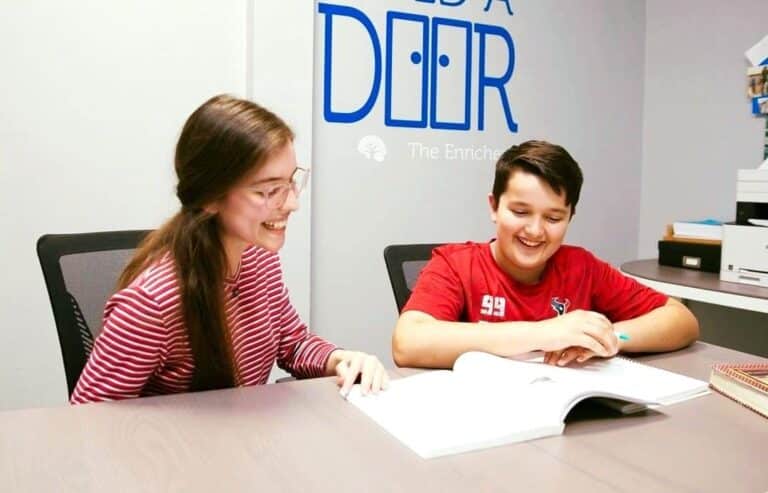Before we get too into the weeds of college admissions, it’s important to preface this article with an important point: Demonstrated interest is not an essential component of an application for every university. Many universities, especially highly selective universities, are “need-blind,” meaning they do not take demonstrated interest into consideration when making admissions decisions. Applying to colleges is stressful, time-consuming, and expensive for many students and their families, and universities know that. They also know that many students—for a variety of personal or financial reasons—are not able to demonstrate interest in traditional ways like going on a campus visit. And that’s a good thing for everyone. It means your student’s acceptance doesn’t hinge on whether or not they took a 5-hour flight to see a campus in person.
The good news doesn’t stop there. Even if a college your student wants to attend does consider demonstrated interests when making an admissions decision, most of the ways colleges assess interest are through things a student should already be doing as a part of their college admissions activities.
What is Demonstrated Interest
You might be thinking, “It’s exactly what it sounds like, right?” Yes, “demonstrated interest” is just that: your student demonstrating their interest in attending a particular university. To get a bit more technical, it’s a component of the common data set a school uses to evaluate an applicant. Many of those data sets are publicly available, so your student should look into them as a part of researching each of the schools on their college list.
Ways to Show Demonstrated Interest
Demonstrating interest looks like more than just going on a campus visit. (Although that is still an important way to demonstrate interest if your student is able!) Below are a few of the ways a student can demonstrate interest before and after applying, but there are many ways to do so.
1. Complete the Supplemental Essays: As a part of their CommonApp application, many universities include a “Why Us?” essay, which invites students to explain why—given the multitude of options—they are interested in a specific school. The thing is, your student should know why they’re applying to a specific university. For many students, the tricky part is translating that why into an essay, but an Enrichery tutor can help articulate those ideas.
2. Apply Early: This is one of the clearest ways for a student to signal to an admissions office that they are serious about attending a university. Applying Early Decision is considered binding, meaning it tells admissions officials that someone is all-in on going to a school. That is a major benefit to a school’s admissions office as they’re looking to fill out an incoming class, and is why it can seriously increase a student’s chance of being accepted to their top choice. Applying Early Action is another way to demonstrate interest.
3. Follow the Newsletter: Far and away, this is the easiest way to demonstrate interest. Most admissions offices (like the University of Texas and Texas A&M) have a newsletter that prospective students can sign up for to receive additional information. Many of the newsletters also track engagement to see if a student is opening the email and visiting the embedded links. Many of these newsletters include useful and interesting information, so your student should be engaging with them to learn more about the school.
4. Get in Contact: Whether it’s speaking with an admissions rep visiting their high school, visiting a table at a college fair, or participating in an interview, there are many ways that your student can demonstrate interest from your hometown.
5. Go on a Campus Tour: Again, if a trip isn’t in your family’s budget or getting time off to tour a school in another state isn’t possible, that is okay. However, your student should go on a campus tour if they are able. More than demonstrating interest by signing in for a tour, being at a college allows your student to request a meeting with an admissions representative and sit in on a class they might be interested in taking. Most importantly, it gives your student a better feel for the university and whether they can imagine themselves attending school there for four or more years.
Colleges that Factor in Demonstrated Interest
In a recent survey of 185 colleges, 15.7% said demonstrated interest was considerably important to their admissions decisions. Another 28% percent consider demonstrated interest to be moderately important. We won’t review all of those here, but below are five universities that factor in demonstrated interest when making an admissions decision.
American University
Located in Washington D.C. and ranked as the 91st best university, American University considers demonstrated interest to be very important when making an admissions decision.
The United States Naval Academy
Ranked as the 4th best liberal arts college in the country, the United States Naval Academy also heavily considers demonstrated interest when selecting students for its incoming class of midshipmen.
The United States Air Force Academy
Coming in just after the Naval Academy in the rankings of best liberal arts colleges, the United States Air Force Academy is another military academy that highly values demonstrated interest.
Michigan State University
Considered a Public Ivy and tied for 30th as the best public school, Michigan State University in East Lansing, Michigan, doesn’t weigh demonstrated interest as highly as our previous three schools, but it does list it as important in its common data set.
University of Arizona
Another member of the Public Ivy League, the University of Arizona, also considers demonstrated interest to be important.
If your student would like help writing their “Why Us?” essay or preparing for their college interview or would appreciate additional guidance with any other part of their application, please contact us today and consider signing up for our College Admissions Workshop.





